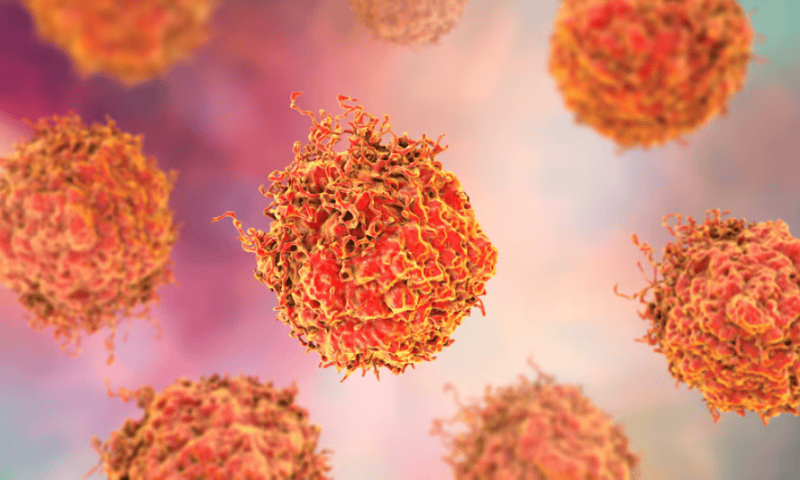New preclinical research on Daiichi Sankyo’s antibody-drug conjugate DS-7300a suggests it might be more effective against hard-to-treat forms of prostate cancer when used alongside a long-standing chemotherapy drug.
According to the results of a study published Nov. 15 in Science Translational Medicine, experiments assessing DS-7300a with and without the blood cancer chemo agent decitabine found that the combo was more effective in mice with neuroendocrine prostate cancer (NEPC) and a form where the tumor suppressor gene RB1 is mutated or lost. The research was sponsored in part by the Japanese pharma and performed by scientists at the Dana-Farber Cancer Institute.
In general, prostate cancer is one of the most treatable if detected early. But some advanced types require castration, where hormones or surgery are used to lower testosterone levels and stop the cancer from growing. About 10% to 20% are resistant to treatment with castration—and, of these, a relatively high number have either changes to RB1 or have evolved into NEPC, both of which make them especially tough to treat.
“RB1 genomic loss is uncommon at prostate cancer diagnosis but RB1 deletion or mutation is present in approximately 10 to 20% of castration-resistant prostate cancers,” lead author Himisha Beltran, M.D., a genitourinary oncologist and director of translational research within medical oncology at Dana-Farber, explained to Fierce Biotech Research via email. NEPC makes up another 15 to 20%, she added. Both scenarios make the prognosis far more dire.
Beltran’s team had previously identified changes in DNA that distinguish NEPC from other forms of prostate cancer, including some that resulted in higher production of enzymes called DNA methyltransferases. Now, they wanted to find out how these DNA changes—also known as DNA methylation—made prostate cancer harder to treat and whether the most highly expressed DNA methyltransferases, DNMT1 and DNMT3A, might be a viable drug target.
For that, they turned to decitabine, a chemotherapy drug that has been used for myelodysplastic cancers since the 1980s. Its anti-cancer activity stems from its ability to inhibit DNA methyltransferases, including DNMT1 and DNMT3A. Studies on NEPC patient-derived cell lines and organoids showed the drug could effectively kill cancer cells, findings that were validated in mouse models of the disease. They also saw differences in DNA markers between treated and untreated mouse models that indicated the drug was effectively preventing DNA methylation.
These findings led the researchers to wonder whether the benefit from using decitabine to inhibit DNMT1 and DNMT3a could extend beyond NEPC to remedy other types of DNA changes found in advanced prostate cancer. They homed in on RB1, the deletion or mutation of which makes the disease more resistant to treatment as well as more likely to evolve into NEPC. Cell studies and experiments with a mouse model of prostate cancer without the RB1 gene showed that the drug was effective in inhibiting tumor progression, though it didn’t have an effect on cancer in models where the gene was intact. Additional analysis showed that, like in the case of NEPC, it worked by inhibiting the DNMTs.
Knowing that DNMT inhibition could lead to the expression of other cancer cell genes, the researchers next focused on seeing whether any of them might make good targets for a combination treatment with decitabine. RNA and DNA sequencing analysis gave them 245 potential candidates, one of which stood out as having some ideal characteristics: the gene for a receptor called B7-H3, the target of prostate tumor treatments under investigation including DS-7300a.
While DS-7300a has been shown to be effective in interim human data (PDF) from early trials on the drug in castration-resistant prostate cancer, there’s reason to think that it might not work as well in NEPC or RB1-mutated tumors. That’s because those forms have lower expression of B7-H3 than other types, research shows, which could make them less vulnerable to the drug.
Beltran’s lab reasoned that treating NEPC and RB1-mutated tumors with decitabine might make them more susceptible to DS-7300a by raising levels of B7-H3. After showing through cell studies that the combination of decitabine and DS-7300a was indeed synergistic—and that DS-7300a alone wasn’t as effective against cancer cells where B7-H3 expression was low—the researchers tested it out in mouse models. Just as they saw in vitro, DS-7300a had anti-tumor effects in mice with both high- and low-B7-H3-expressing tumors but was more effective against tumors with low levels of B7-H3 when combined with decitabine.
The study comes with caveats. It only looked at a limited number of prostate cancer models, the researchers wrote in their report, so it couldn’t assess all the possible relationships between DNA methylation, gene expression and treatment response according to a prostate cancer’s specific genotype and phenotype. On top of that, it’s not clear what level of B7-H3 should be expressed by tumors for them to respond to therapy, Beltran noted.
“This can be investigated further in ongoing trials,” she said.
Beltran’s team plans to study whether NEPC and prostate cancers with the loss of RB1 respond to monotherapy with decitabine in clinical trials. They also hope to launch a study on the drug in combination with DS-7300a, the effectiveness of which will be assessed in part according to certain biomarkers, she said.

